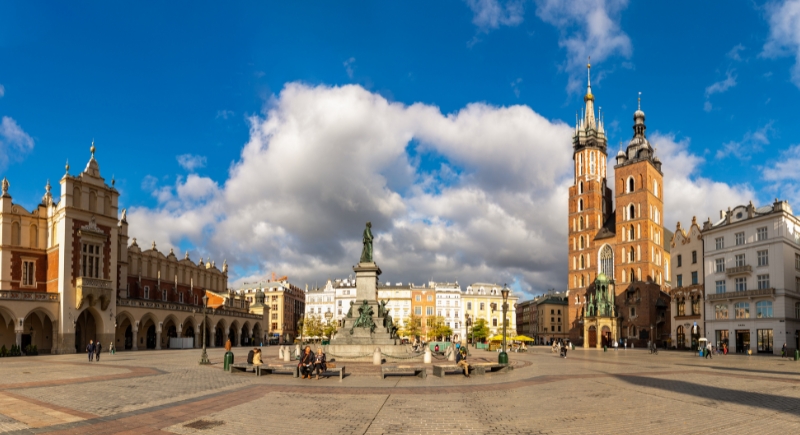15 Reasons to Consider Moving to Europe After a Layoff
Getting laid off can knock the wind out of you. But sometimes, losing your job comes with a chance to rethink what you want out of life. You might find that the next opportunity isn’t close to home at all. If you’re open to a new chapter, Europe offers more than scenic vacations. It might just be the reset you didn’t know you needed. Here’s why packing your bags for it makes surprising sense.
Lower Healthcare Costs Can Lighten the Load

Credit: Canva
In the U.S., losing your job often means losing your health insurance. That’s not the case in many European countries. Universal healthcare systems across nations like France, Spain, and Germany ensure residents get coverage without draining their savings. In France, for example, the public system covers 70% of most medical costs.
Work-Life Balance Isn’t Just a Buzzword

Credit: Getty Images
European labor laws put a serious premium on personal time. Full-time employees in countries like Germany or the Netherlands get four to six weeks of paid vacation, plus national holidays. In France, employers legally can’t contact workers outside business hours.
Affordable Living in Unexpected Places

Credit: Canva
Many European cities offer a lower cost of living without sacrificing quality. In Portugal, the average monthly cost for a single adult is under $1,700. Places like Valencia, Kraków, or Thessaloniki combine low prices with lively communities, historic architecture, and solid public services.
Residency by Investment Has Real Perks

Credit: Canva
Golden Visa programs offer a way to gain residency through investment. In Greece, a real estate purchase of around $280,000 can unlock a five-year renewable residence permit. After five years, Portugal’s program offers a path to citizenship with fund investments starting at $578,000.
The Paperwork Isn’t That Scary

Credit: Getty Images
Yes, visas and residency applications can feel like a puzzle, but many countries are making it easier. Portugal’s D7 visa is tailored for people with passive income or freelance gigs. Spain’s non-lucrative visa is popular with early retirees. And once you’re in, the bureaucracy usually gets less intimidating.
High-Speed Trains Beat Highway Traffic

Credit: pexels
Europe’s rail system makes travel feel like a breeze. Germany’s ICE trains, France’s TGV, and Spain’s AVE connect major cities at speeds topping 185 mph. A short ride gets you from Lisbon to Porto in under three hours or from Paris to Brussels in 90 minutes.
Short-Term Visas Buy You Time

Credit: Getty Images
Americans can legally stay in the Schengen Zone for up to 90 days without a visa. That gives you time to explore where you might want to settle in the long term. Countries like Spain, Portugal, and Italy also offer digital nomad and long-stay visas if you’re freelancing or job hunting online.
Renting Doesn’t Feel Like a Gamble

Credit: Canva
Rental protections are strong in many parts of Europe. In Germany, for example, leases favor tenants with strict limits on evictions and yearly rent increases. Many cities cap deposit amounts and regulate short-term rentals to prevent housing shortages. That kind of stability can be comforting after losing a job.
Culinary Options Go Way Beyond Takeout

Credit: Getty Images
A layoff can free up your schedule—so why not fill it with tapas in Seville, late-night pizza in Naples, or a plate of pierogi in Warsaw? Europe’s regional cuisines offer a rotating menu of things to try. Mealtime is often social, slow, and intentional.
Language Learning Comes With Perks

Credit: Canva
Learning a new language might seem intimidating, but it opens more doors than job offers. Countries like the Netherlands and Scandinavia offer expat-friendly services in English, while places like Spain or Italy reward language learners with integration points toward residency or citizenship.
Green Spaces Are Built Into City Life

Credit: Canva
Many European cities were designed before cars, which means they have more walkable layouts and built-in parks. Berlin has over 2,500 public green spaces, and Stockholm has nearly 30% parkland. Even smaller cities prioritize open-air plazas and community gardens. These offer mental clarity and social spots without needing a car or a membership.
Europe Cares About the Environment

Credit: Canva
If the corporate grind left you rethinking your impact, Europe’s focus on sustainability might match your next phase. Public recycling bins, electric trams, and green roofs are standard expectations. The EU continues to push for renewable energy, low-emission zones, and sustainable urban design.
Career Paths Can Look Different

Credit: Getty Images
Tech, education, and healthcare remain strong sectors across the continent. In Ireland, global companies like Google and Meta have major offices. Germany is short on engineers. Teaching English in Spain or working remotely from a café in Prague are also viable options.
Everyday Life Just Moves Slower

Credit: pexels
Shops close early, Sunday is still a rest day, and people linger over meals. That shift in tempo—especially in Southern Europe—can feel strange at first but quickly becomes soothing. If your layoff left you wondering how to live differently, Europe might just have the answer: less hustle, more life.
You’ll Meet People Who’ve Done the Same

Credit: Getty Images
You’re not the only one considering a move after a job shake-up. Expats, digital nomads, and career-changers are everywhere in Europe. Prague, Valencia, and Tbilisi have tight-knit expat scenes with meetups, co-working hubs, and language exchange groups.